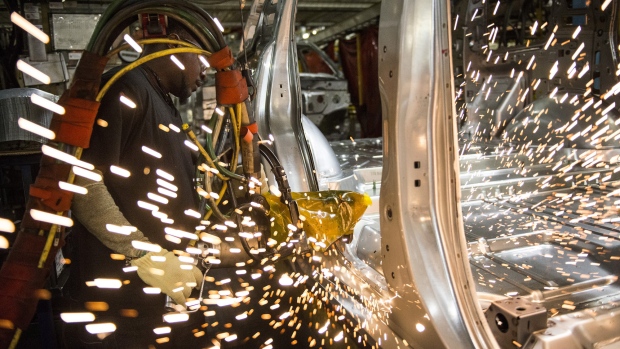Dec 11, 2018
China's car-tariff gesture stirs hope of a more lasting truce
, Bloomberg News

China’s openness to cutting tariffs on U.S. cars is feeding optimism about trade talks with the U.S. But recent history gives investors reason to be cautious about expecting a deal by the March 1 deadline.
Shares of U.S. automakers surged Tuesday after Bloomberg News reported that China’s Cabinet will review a proposal to cut tariffs on U.S. cars to 15 per cent from 40 per cent, bringing the U.S. in line with what other countries pay, according to people familiar with the matter. President Donald Trump tweeted that “very productive conversations” are taking place with the Chinese, predicting “important announcements” to come.
Key Insights
- The car-tariff gesture is the latest in a series of positive developments this week. China intends to resume purchases of American soybeans soon, with officials considering buying between 5 million and 8 million tons, according to government officials.
- China’s plans on cars and soybeans would only reverse moves it made in retaliation against U.S. tariffs, rather than removing barriers that existed before the trade war.
- Chinese Vice Premier Liu He, U.S. Treasury Secretary Steven Mnuchin and Trade Representative Robert Lighthizer spoke by phone Tuesday morning Beijing time, exchanging views on the road map for negotiations. Lighthizer has been tasked with reaching a deal over “structural changes” to China’s economic model by March 1.
- China said last week it would deepen reforms in the area of science and technology, and put more effort into protecting intellectual-property rights.
- But Beijing has shown a pattern of making promises it doesn’t implement or that ultimately don’t satisfy the U.S. While China has been playing down its “Made in China 2025” plan to dominate emerging technologies, it’s pushing ahead with its state-driven industrial policies, according to the Trump administration.
- “This could be the first of many symbolically significant and substantively modest concessions that China offers in order to prolong the trade truce,” said Eswar Prasad, an expert in China and trade policy at Cornell University.
- The arrest of Huawei’s chief financial officer remains a cloud over negotiations. A Canadian judge said this week he’s not satisfied with a bail proposal by Meng Wanzhou, who faces extradition to the U.S. over accusations she helped the company evade sanctions against Iran. Her lawyers reject the accusations.
Get More
- The trade metric Trump watches most closely continues to move in the opposite direction of where he wants it to go. China’s trade surplus with the U.S. hit a record in November, even as overall export growth slowed. Exports to the U.S. rose 9.8 per cent while imports slumped 25 per cent.
- Trump also has been fixated on the stock market. The S&P 500 Index and Dow Jones Industrial Average are both down more than 1 per cent this year, partly on fears over trade tensions.

